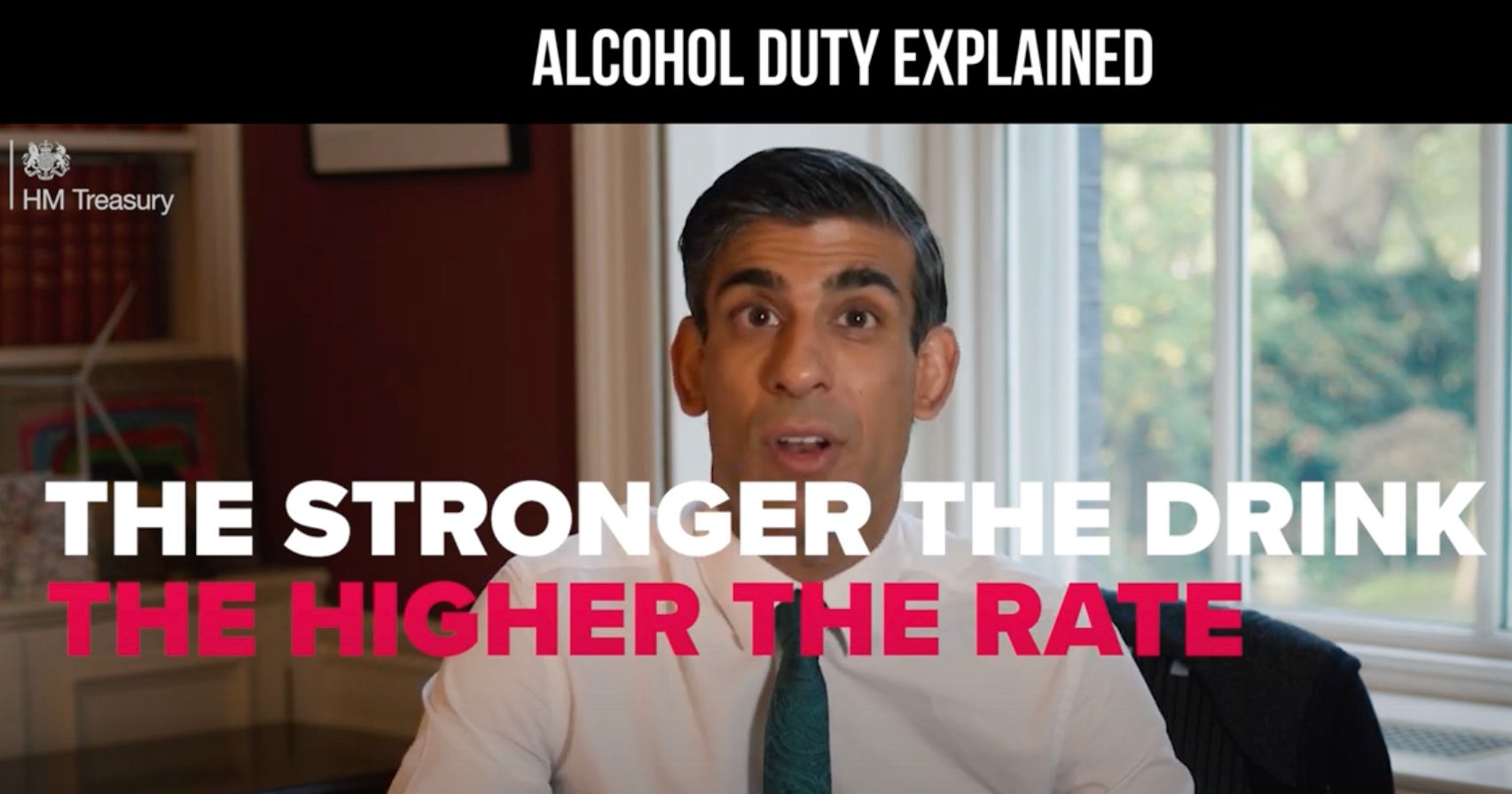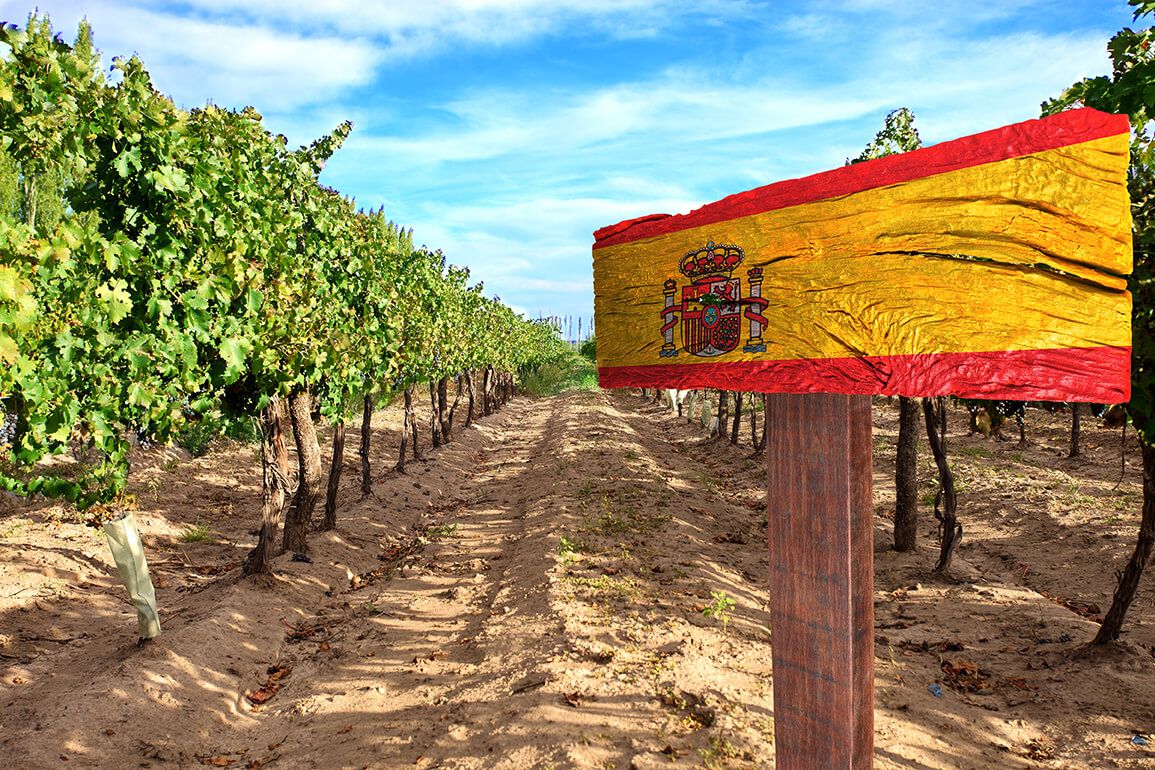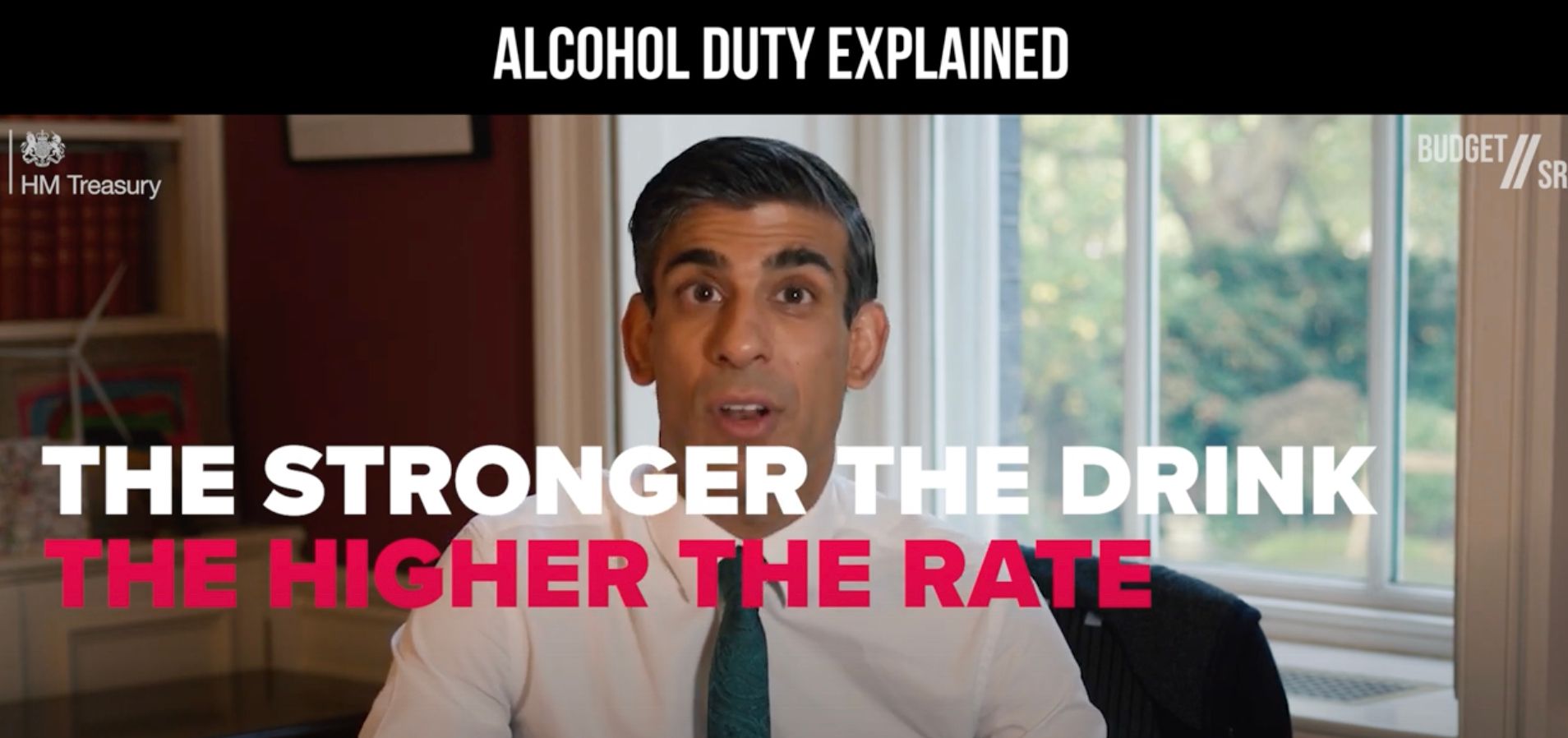Like most of us in the wine trade, the closer we get to February 2025 the more exasperated I feel with the government’s unwillingness to take a common sense and proportionate approach to its alcohol duty reforms. Having recognised that an easement on the tax rate for most wines (all those between 11.5% and 14.% abv) was necessary when the policy was introduced in August 2023, the stubborn refusal to make the easement permanent is as perplexing as it is terrifying. How did it come to this?
I was at first optimistic that ministers would see the sense in the wine trade’s unanimous call for the easement to be made permanent. Not doing so would, in the words of a prominent WSTA member “seal the fate of many businesses that will have gone under thanks to this government’s choice to press on with a costly, complex and beaureaucratic new duty regime”.
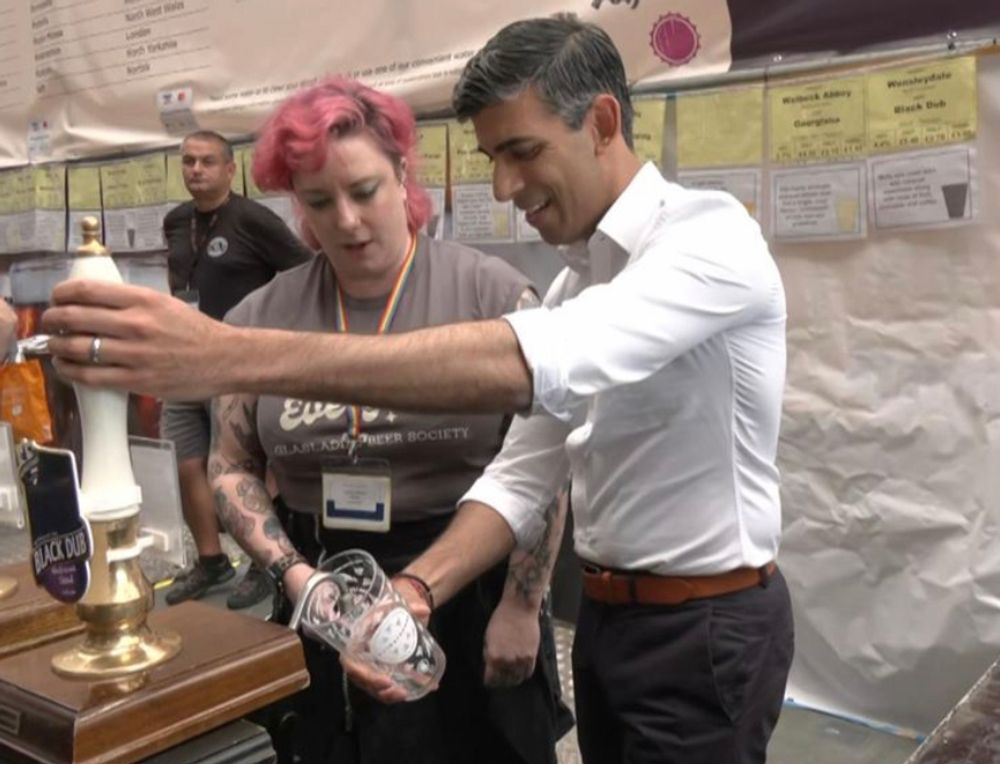
Prime Minister Rishi Sunak seems intent on implementing the full alcohol duty reforms when they are due to become legislation in February 2025
What government would be so stubborn in the face of such warnings from a business community that is responsible for servicing the second largest wine import market in the world?
We had already been successful in making former Defra minister Victoria Prentis see the sense in scrapping the similarly unworkable VI1 forms. VI1s are forms required by the EU for imports of wine from non-EU countries that require laboratory analysis and other technical details. The UK had intended to impose VI1s on the EU and all other countries, meaning 99.5% of wine consumed in the UK would require an accompanying expensive form, an obviously daft regulation that was thankfully removed from the EU Withdrawal Act.
Why couldn’t the government make a similar move, one that would be politically straightforward and already in place for 18 months, and make the easement permanent?
Who is pulling the strings?
A plausible answer to that vexing question came to me when Gavin Quinney, of Chateau Bauduc in Bordeaux, brought to my attention on X/Twitter that Rishi Sunak’s alcohol duty reform policy was heavily influenced by a report called Pour Decisions , written by the Social Market Foundation (SMF).
The report was funded by the Institute of Alcohol Studies which in turn is funded by the prohibitionist Temperance Alliance House Foundation (sharing trustees and receiving £603,000 in grants and rent).
I had wondered how the Treasury had come up with such a change in policy direction and the conclusion of the SMF report contains some key elements of the actual policy:
“Brexit could open up opportunities for significant reform of the UK’s alcohol duty system, allowing the creation of a more rationalised and effective tax regime. This includes enabling on-trade and off-trade alcohol consumption to be taxed at different rates and allowing wine and cider to be taxed according to their alcohol content, rather than the volume of the final product as is the case at present. European directives mean that these reforms are not possible at the moment, and we urge policymakers looking for tax and regulatory reforms ‘unlocked’ by Brexit to consider the case for rethinking alcohol duty.”
The government policy closely followed the recommendations of the report, to use Brexit freedoms to create an alcohol tax policy that included public health outcomes for the first time.
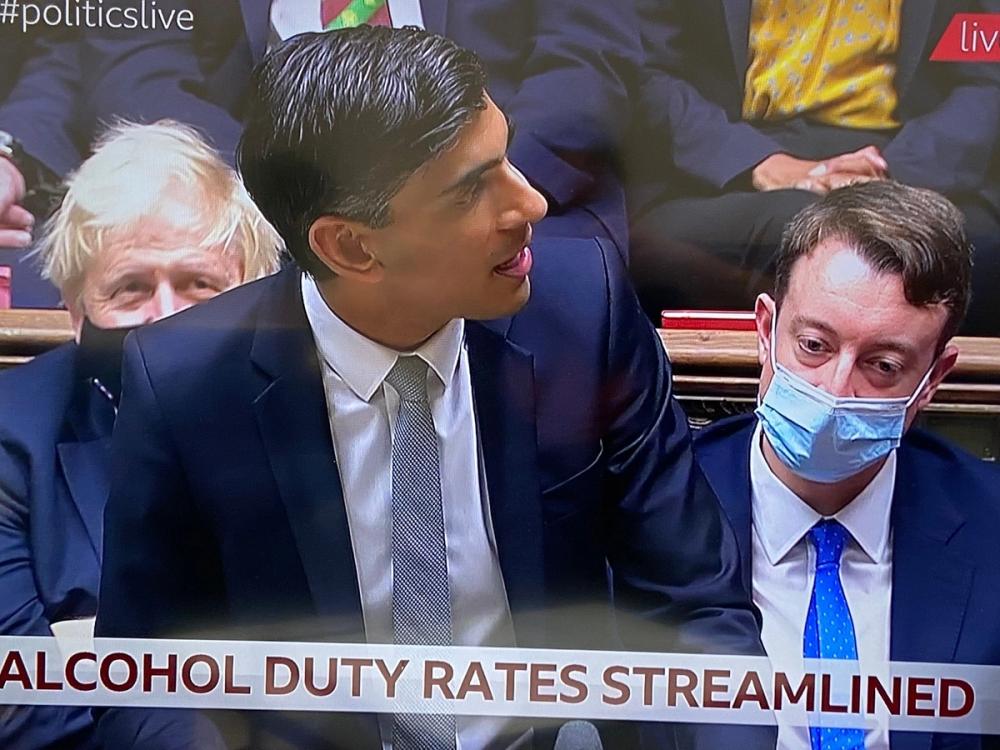
Rishi Sunk announced the biggest modern overhaul to the alcohol duty system when he was Chancellor in 2021
Then Chancellor Rishi Sunak announced, in 2021: “So today, we are taking advantage of leaving the EU to announce the most radical simplification of alcohol duties for over 140 years.”
Gareth Davies,Exchequer Secretary to the Treasury, maintained the government’s argument in a recent Westminster Hall debate, saying he was determined to extend the strength-based alcohol system to all wines “keeping the principle of its public health objectives, the first time they had been inserted into the alcohol duty system”.
Miles Beale, chief executive of the WSTA, has clearly dismantled Davies’ arguments, pointing out the inconsistency of scrapping the easement while maintaining the multiple tax rates imposed on different types of alcohol at the same ABV.
Davies also said that the government had listened to and consulted with the drinks industry in developing the policy through four rounds of consultation. That is completely untrue as the policy still resembles in large part the recommendations of the SMF report, demonstrating that government policy has followed research funded by groups that want to bring about an alcohol free society.
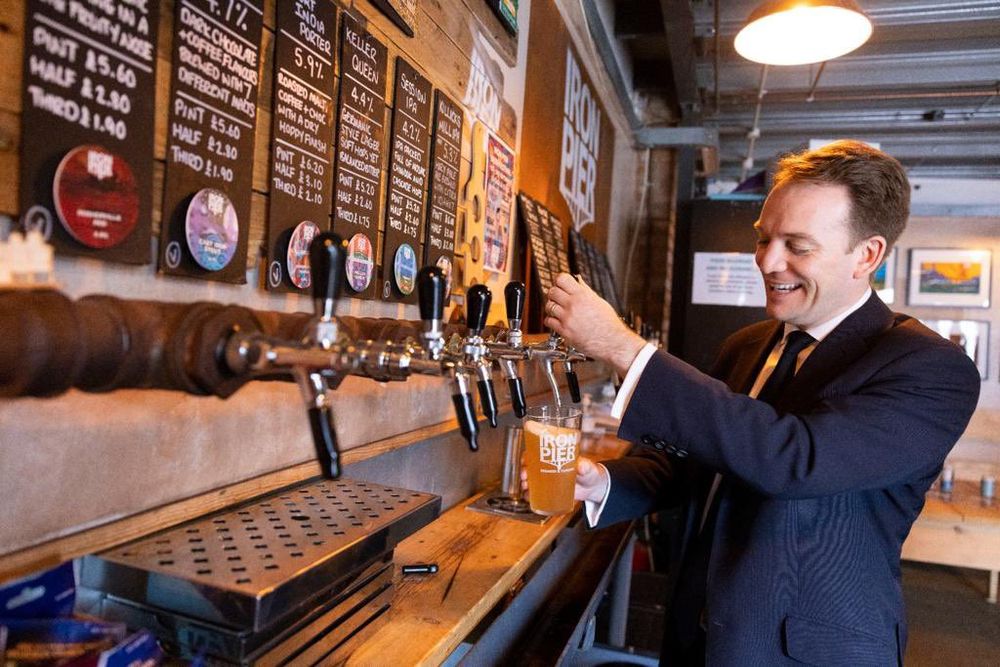
Gareth Davies MP, Exchequer Secretary, claims the new alcohol duty reforms have been made in full consultation with the drinks industry
Is the unmanageable administrative burden placed on businesses by taxing all wine by alcohol level, on balance, more likely to be the intended consequence of the Alliance House Foundation rather than the unintended consequence of an incompetent government department? The more the Treasury doubles down the more I wonder.
Brexit think tanks
Let’s look at the political background around the time the SMF report was published in May 2019. Boris Johnson became PM in July 2019 and Rishi Sunak became Chancellor in February 2020. At that time the government was refusing to talk to associations lobbying on behalf of business because their members were generally against Brexit and MPs had spent three years unsuccessfully trying to agree on a way forward.
The Johnson regime shut down most communication about Brexit policy and its impacts, as it pursued a hard Brexit agenda, prorogued Parliament, expelled centrist Conservatives from the Party and campaigned at the General Election to deliver a majority to push through its hard agenda and ‘Get Brexit Done’.
The Tufton Street Think Tanks were very influential in the development of Brexit policy, as think tanks fell outside existing lobbying rules and had unparalleled access to ministers. 55 Tufton Street was also the home of the Vote Leave campaign. Once the country voted to leave the EU the same think tanks had to research what it might actually mean in policy terms, as government departments had been involved in campaigning to Remain and had not been involved in making policy in the event of a decision to Leave.
The Pour Decision report was one of many such reports emanating from Leave supporting Think Tanks (Institute of Economic Affairs and Tax Payers Alliance among them) and the wine duty changes were adopted in large part as recommended.
It makes sense that a policy report that presents the benefits of Brexit in regard to using freedoms to diverge from EU regulations would be well received by a pro-Leave Chancellor looking for new policies post-Brexit. Rishi Sunak is teetotal and the report introduces public health outcomes related to changes in alcohol duty only available with the UK being outside the EU.
The fact the report was funded by a Prohibition Charity and its recommendations would involve disproportionate amounts of administration seem not to have been any deterrent to the recommendations being adopted. I think this points to very poor judgement by the then Chancellor, who clearly exerts great influence over the shape of the policy to this day.
We are running out of time for a political solution to this crisis in our industry and expecting anything further from the current government is fanciful. We need to exert as much pressure as we can on the Labour Party to distance themselves from policies that are anti-business, anti-trade, badly flawed and overly-influenced by the prohibitionist movement. We need to make MPs and ministers understand how the policy was devised and why the government refuses to take a common sense approach and extend the current easement.
* Hal Wilson is owner of Cambridge Wine Merchants.
* If you would like to follow Hal Wilson and share your thoughts on the alcohol duty reforms on The Buyer then please contact Richard Siddle on richardsiddle5@gmail.com.
